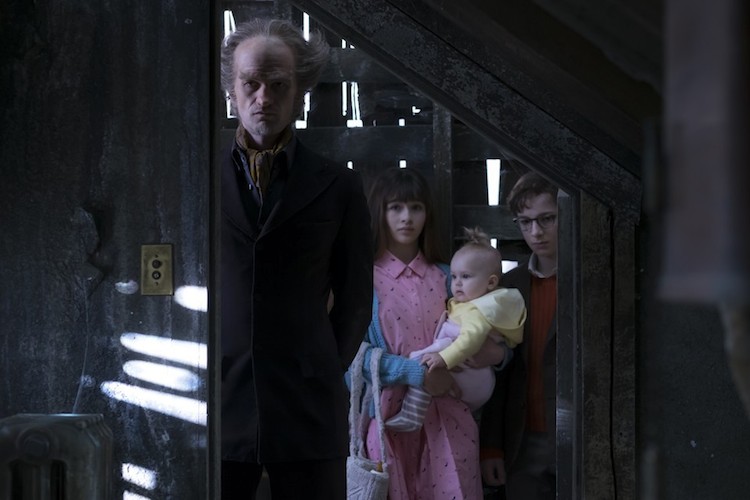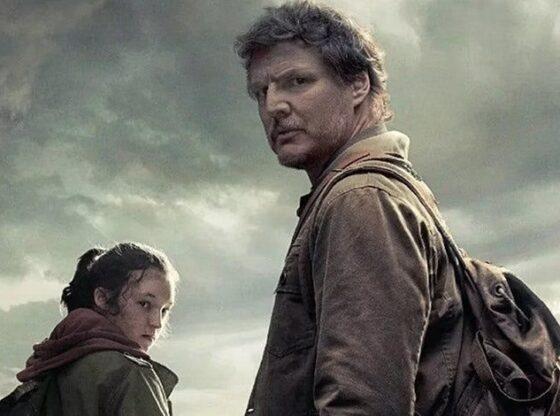If you look to spend your free time watching some rather unpleasant occurrences, Netflix’s new adaptation of the much-adored book series “Lemony Snicket’s A Series of Unfortunate Events” will surely be your next obsession. The series, riding on the heels of a great deal of anticipation and skepticism, has arrived to wipe away any bitter memories fans might have of the perfectly okay but less-than-faithful film version that came over a decade ago.
Starring newcomers Malina Weissman, Louis Hynes and Presley Smith as the Baudelaire orphans, three brilliant but tortured children who lose their parents in a mysterious fire, the series takes each book and turns them into pairs of hour-long episodes.
The first season chronicles the first four books in the series, following the children as they continuously try to escape the clutches of the dastardly Count Olaf, played to near perfection by Neil Patrick Harris (“How I Met Your Mother”), who seeks the large fortune left behind by the Baudelaire parents. Narrating the series and chewing up nearly every scene is Snicket himself, played by a wonderfully deadpan Patrick Warburton (“The Tick”).
The beauty of the series lies in its characters and its commitment to a darkly hilarious sense of melancholy, which in turn is what made the book series such a widely read success. Despite an overly goofy opening credits sequence and an equally worrisome marketing campaign, Netflix’s take on the show does an excellent job of mixing the series’ more adult themes with the strange humor that defined the prose of the books.
A large amount of that credit goes to Daniel Handler, the real author behind Lemony Snicket, whose involvement here contributes to translating this wonderfully weird world to the screen in ways the film adaptation, which lacked his creative input, never could.
Harris and Warburton will come to be known as the definitive versions of these characters and the two veteran actors appropriately steal the show every moment they’re onscreen. While Jim Carrey’s (“The Truman Show”) cinematic take on Olaf was widely accepted as decent, Harris surprisingly captures the sinister edge to the otherwise comical character, another aspect the movie lacked.
Harris strikes the perfect tone between self-obsessed dimwit and murderous sociopath and the horror of his character appropriately hangs over every moment of the story, even when he isn’t present. Meanwhile, Warburton, as the consistently morose Snicket, turns out to be one of the most inspired casting choices in recent memory, admirably turning the character into a kind of battered noir detective rather than simply playing him off as a stereotypically aloof writer. His ability to create the downhearted but clever tone behind the story he narrates is simply marvelous, an excellent signifier of the strength of not only the script, but also Warburton’s often overlooked skills as an actor.
Despite a treasure trove of positives, the series is, however, just out of reach of being perfect. The children, despite being the main characters of the series, still don’t feel quite right on screen. Weissman and Hynes do perfectly fine with what they’re given, but the nuance given to the adult characters is lost on them, turning them into poorly defined caricature.
Like the books, the show is sometimes messy when it comes to deciding which tone to take in each scene, occasionally veering impatiently from comically ridiculous to deeply disturbing in an instant.
In the end, the show is unlikely to win over anyone who wasn’t a fan of the books, but its bravery to stick to its premise and let its better characters dazzle the audience makes the show a winner, one that will be difficult for the many shows coming out this year to top.
The show may beg you to look away, to find something happier to enjoy, but it and its viewers know that there are few things more delightful than this unfortunate series of events.











